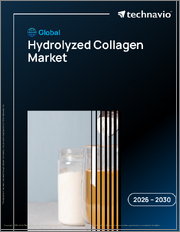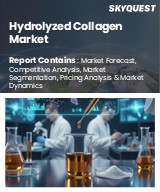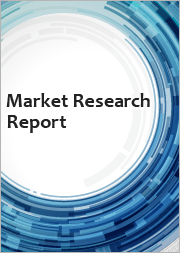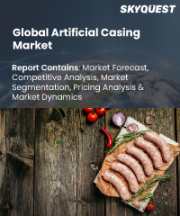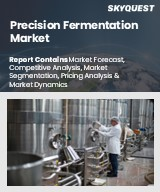
|
시장보고서
상품코드
1820432
콜라겐 시장 규모, 점유율, 동향, 예측 : 공급원, 제품, 용도, 지역별(2025-2033년)Collagen Market Size, Share, Trends and Forecast by Source, Product, Application, and Region, 2025-2033 |
||||||
세계 콜라겐 시장 규모는 2024년 105억 8,571만 달러에 달했습니다. 향후 IMARC Group은 2033년에는 176억 5,649만 달러에 달할 것으로 예상되며, 2025년부터 2033년까지 5.56%의 CAGR을 기록할 것으로 예측하고 있습니다. 현재 유럽이 시장을 독점하고 있으며, 2024년 시장 점유율은 33.2%를 기록했습니다. 이 시장은 식감, 안정성, 영양가를 높이는 식음료(F&B) 산업에서의 사용 증가에 힘입어 성장세를 보이고 있습니다. 또한, 노화 방지 및 피부 회복 솔루션에 대한 관심에 힘입어 화장품 및 퍼스널케어 제품에 대한 수요가 증가함에 따라 콜라겐 시장 점유율이 증가하고 있습니다. 광범위한 연구 개발(R&D) 활동은 콜라겐의 용도를 더욱 확장하고, 배합 기술을 개선하며, 다양한 산업 분야에 걸쳐 혁신적이고 고성능의 제품을 생산하고 있습니다.
콜라겐 시장의 주요 촉진요인 중 하나는 건강, 웰빙, 천연 성분에 대한 소비자의 관심 증가입니다. 노화, 피트니스, 예방적 건강에 대한 관심이 높아지면서 콜라겐은 피부 탄력, 관절 가동성, 근육 회복을 돕는 것으로 입증된 효능으로 인기를 끌고 있습니다. 이러한 추세는 특히 건강보조식품과 기능성 식품 분야에서 두드러지게 나타나고 있으며, 소비자들은 실제 생리적 효과를 가져다주는 보충제나 식용제품을 찾고 있습니다. 콜라겐의 클린 라벨, 고단백, 최소한의 가공을 거친 성분이라는 이미지는 자연스럽고 투명한 제형에 대한 선호도가 높아지는 추세와 일치합니다. 콜라겐은 분말, 캡슐, 강화 음료 등 다양한 형태와 건강 목표에 대한 적합성으로 인해 일상적인 웰빙 루틴의 필수품으로 자리 잡으며 콜라겐 시장의 성장에 박차를 가하고 있습니다.
미국 콜라겐 시장은 웰빙과 미용을 지원하는 천연 기능성 성분에 대한 소비자의 관심에 힘입어 호황을 누리고 있습니다. 이 시장의 총 점유율은 현재 83.30%에 달합니다. 콜라겐이 영양 보충제, 단백질 강화 스낵, RTD(Ready to Drink) 음료에 널리 사용되는 것은 피부 건강, 관절 지원, 근육 회복을 촉진한다는 명성을 반영합니다. 이와 함께 퍼스널케어 업계에서는 안티에이징을 위해 크림, 세럼, 마스크에 콜라겐을 함유하는 사례가 늘고 있습니다. 강력한 R&D 노력은 콜라겐 펩타이드, 가수분해물, 채식주의자 및 클린 라벨 선호도를 충족하는 식물성 대체품 등 혁신적인 형태의 콜라겐 펩타이드의 개발을 촉진하고 있습니다. E-Commerce와 D2C(Direct-to-Consumer) 채널이 활성화되어 있어 새로운 브랜드가 타겟 소비자에게 빠르게 다가갈 수 있고, 제품의 품질과 투명성을 중시하는 규제가 소비자의 신뢰를 확보할 수 있습니다. 소비자 수요, 혁신, 유통 인프라의 결합으로 미국 콜라겐 시장은 건강 및 미용 분야 모두에서 지속적인 상승세를 보이고 있습니다.
콜라겐 시장 동향:
식음료 산업에서 제품 사용 증가
콜라겐은 농축된 단백질 공급원이기 때문에 식음료(F&B) 분야에서 많은 용도를 가지고 있으며, 단백질 바, 음료, 에너지 레벨을 높이는 분말을 만드는 데 사용할 수 있습니다. 예를 들어, 2025년 1월, 라이프웨이는 프로바이오틱스 스무디 + 콜라겐 라인이라는 새로운 제품 라인업을 발표했습니다. 최첨단 콜라겐 스무디는 라이프웨이의 트레이드마크인 케피어 배양액으로 만들어졌으며, 100% 유당 무첨가 제품입니다. 또한, 요구르트, 아이스크림, 소시지, 크림, 육류 제품 등의 식감과 입맛을 개선하기 위해 광범위하게 사용되는 것도 시장 성장을 촉진하고 있습니다. 이 외에도 유화제 및 안정제로서 드레싱, 소스, 수프, 음료, 마요네즈에 적용이 확대되고 있는 것도 시장 성장을 견인하고 있습니다. 또한, 가볍고 푹신한 식감에 기여하는 기포 능력으로 인해 디저트, 무스, 휘핑 토핑에 대한 적용이 증가하고 있는 것도 콜라겐 시장의 수요를 뒷받침하고 있습니다.
화장품 및 퍼스널케어 제품에서 콜라겐에 대한 수요 확대
콜라겐은 일반적으로 안티에이징 크림, 세럼, 마스크에 함유되어 수분을 공급하고 피부 본연의 콜라겐 합성을 도와 젊고 생기 있는 피부로 가꾸어 줍니다. 예를 들어, 2025년 5월, 뭄바이에 본사를 둔 미용 및 퍼스널케어 전문 기업 닥터 라쉘(Dr. Rashel)은 인도 최초의 100% 비건 바이오 콜라겐 딥 페이셜 마스크를 Proboost 스킨케어 시리즈의 일환으로 출시하였습니다. 식물에서 추출한 Ocean 콜라겐과 콩 섬유로 개발된 이 신제품은 손상된 피부를 회복시키고, 탄력을 강화하며, 잔주름을 완화하고, 강렬한 보습을 선사합니다. 또한, 다른 퍼스널케어 제품의 보습제로도 작용하여 피부를 촉촉하고 부드럽고 유연하게 유지해줍니다. 이 외에도 콜라겐은 립 마스크, 립밤 등 립 케어 제품에 함유되어 입술의 질감과 컨디션을 개선하고 건조함을 방지하며 입술을 매끄럽게 가꾸어 줍니다. 또한 컨디셔너, 샴푸, 트리트먼트 등 다양한 헤어케어 제품에 사용되어 손상된 모발에 영양을 공급하고, 수분을 공급하고, 광택을 개선하고, 더 두껍고 건강한 모발을 제공하는 것은 콜라겐 시장 전망에 이익을 가져다 줍니다.
광범위한 연구개발(R&D) 활동
일반 콜라겐에 비해 저분자로 생물학적 활성이 개선된 해양성 콜라겐 펩타이드의 등장은 시장 성장의 원동력이 되고 있습니다. 또한, 최근 콜라겐 생산에 미생물 발효법이 등장하여 우수한 수율을 제공하고 공정의 확장성, 지속가능성 및 효율성을 향상시켜 시장 성장을 촉진하고 있습니다. 예를 들어, 2025년 4월, Ashland Global Holdings inc.는 지속가능하고 다재다능한 스킨케어 아이템의 증가 추세에 대응하기 위해 콜라겐 과학의 획기적인 생물학적 기능 혁신인 콜라펩틸(collapeptyl)을 출시하였습니다. 또한, 캡슐화 기술, 나노에멀전, 리포솜 전달 시스템 등 콜라겐 및 관련 생리활성제의 안정성, 생체 이용률, 표적 전달을 개선하는 혁신적인 약물전달 시스템의 개발이 시장 성장에 기여하고 있습니다. 이와 더불어, 동물 유래 콜라겐을 본래의 구조와 기능으로 추출하기 위한 고압처리(HPP) 방식의 적용이 시장 성장을 뒷받침하고 있습니다.
목차
제1장 서문
제2장 조사 범위와 조사 방법
- 조사 목적
- 이해관계자
- 정보 출처
- 1차 정보
- 2차 정보
- 시장 추정
- 상향식 접근
- 하향식 접근
- 조사 방법
제3장 주요 요약
제4장 소개
제5장 세계의 콜라겐 시장
- 시장 개요
- 시장 실적
- COVID-19의 영향
- 시장 예측
제6장 시장 내역 : 공급원별
- 소
- 돼지
- 가금
- 해양
- 기타
제7장 시장 내역 : 제품별
- 젤라틴
- 가수분해 콜라겐
- 천연 콜라겐
- 합성 콜라겐
- 기타
제8장 시장 내역 : 용도별
- 식품 및 음료
- 주요 부문
- 기능성 식품
- 기능성 음료
- 식이보충제
- 제과
- 디저트
- 육류 가공
- 주요 부문
- 헬스케어
- 주요 부문
- 뼈와 관절 건강보조제
- 상처 피복재
- 조직 재생
- 의료 임플란트
- 심장병학
- 약물전달
- 주요 부문
- 화장품
- 주요 부문
- 미용 보충제(뉴트리코스메틱스)
- 외용 화장품
- 주요 부문
- 기타
제9장 시장 내역 : 지역별
- 북미
- 미국
- 캐나다
- 아시아태평양
- 중국
- 일본
- 인도
- 한국
- 호주
- 인도네시아
- 기타
- 유럽
- 독일
- 프랑스
- 영국
- 이탈리아
- 스페인
- 러시아
- 기타
- 라틴아메리카
- 브라질
- 멕시코
- 기타
- 중동 및 아프리카
제10장 SWOT 분석
제11장 밸류체인 분석
제12장 Porter's Five Forces 분석
제13장 가격 분석
제14장 경쟁 구도
- 시장 구조
- 주요 기업
- 주요 기업 개요
- Advanced BioMatrix Inc.
- Collagen Solutions Plc(Rosen's Diversified Inc.)
- Connoils LLC
- Croda International Plc
- Gelita AG
- Gelnex
- ITALGELATINE S.p.A.
- Koninklijke DSM N.V.
- Lapi Gelatine S.p.a.
- Nippi Collagen NA Inc.(Nippi Inc)
- Nitta Gelatin NA Inc.
- Rousselot(Darling Ingredients)
- Tessenderlo Group
The global collagen market size was valued at USD 10,585.71 Million in 2024. Looking forward, IMARC Group estimates the market to reach USD 17,656.49 Million by 2033, exhibiting a CAGR of 5.56% from 2025-2033. Europe currently dominates the market, holding a market share of 33.2% in 2024. The market is being propelled by rising use in the food and beverage (F&B) industry, where it enhances texture, stability, and nutritional value. Additionally, growing demand in cosmetics and personal care products, driven by interest in anti-aging and skin-repair solutions, boosts collagen market share. Extensive research and development (R&D) activities are further expanding collagen's applications, improving formulation techniques, and leading to innovative, high-performance products across multiple industries.
One major driver of the collagen market is the rising consumer focus on health, wellness, and natural ingredients. As people become more proactive about aging, fitness, and preventative health, collagen is gaining popularity for its proven benefits in supporting skin elasticity, joint mobility, and muscle recovery. This trend is especially strong in the nutraceutical and functional food sectors, where consumers are seeking supplements and edible products that deliver real physiological benefits. Collagen's image as a clean-label, high-protein, and minimally processed ingredient aligns with growing preferences for natural and transparent formulations. Whether in powders, capsules, or fortified beverages, its versatility and compatibility with health goals make it a staple in daily wellness routines, fueling collagen market growth.
The U.S. collagen market is thriving, driven by consumer interest in natural, functional ingredients that support wellness and beauty. The market currently holds a total share of 83.30%. Collagen's widespread use in dietary supplements, protein-enhanced snacks, and ready-to-drink (RTD) beverages reflects its reputation for promoting skin health, joint support, and muscle recovery. In parallel, the personal care industry increasingly incorporates collagen into creams, serums, and masks for anti-aging benefits. Strong R&D efforts are fueling innovative forms like collagen peptides, hydrolysates, and plant-based alternatives that cater to vegetarian and clean-label preferences. Robust e-commerce and direct-to-consumer (D2C) channels enable new brands to reach target audiences quickly, while regulatory emphasis on product quality and transparency ensures consumer confidence. This combination of consumer demand, innovation, and distribution infrastructure continues to elevate the U.S. collagen market across both health and beauty sectors.
Collagen Market Trends:
The increasing product utilization in the food and beverage industry
Collagen has many uses in the food and beverage (F&B) sector since it is a concentrated source of protein, hence can be utilized for manufacturing protein bars, drinks, and powders to increase energy levels. For example, in January 2025, Lifeway introduced a new lineup of products, the Probiotic Smoothie + Collagen line. The cutting-edge collagen smoothies are crafted with Lifeway's trademark kefir cultures and are 100% lactose-free. In addition, the extensive use of the product to improve the texture and mouthfeel of yogurts, ice creams, sausages, creams, and meat products is giving a boost to the market growth. Besides this, the growing application of the product as an emulsifier and stabilizer in dressings, sauces, soups, beverages, and mayonnaise is helping the market growth. Additionally, the increasing product application in desserts, mousses, and whipped toppings due to its foaming ability that contributes to the light and fluffy texture is supporting the collagen market demand.
The growing demand for collagen in cosmetics and personal care products
Collagen is commonly applied in anti-aging creams, serums, and masks to attain a youthful and revitalized look by delivering hydration and helping the skin's inherent collagen synthesis. For example, in May 2025, Mumbai-based leading beauty and personal care firm Dr. Rashel released India's first 100% vegan Bio-Collagen Deep Facial Mask as a part of its Proboost Skincare Range. Developed from plant-based Ocean Collagen and soy fiber, the new product repairs damaged skin, enhances suppleness, reduces fine lines, and gives intense hydration. Additionally, it functions as a moisturizer in other personal care products to maintain hydrated, soft, and supple skin. Besides this, collagen is incorporated in lip care products, including lip masks and lip balms, to enhance the texture and condition of the lips, diminish dryness, and give the lips a smoother look. In addition, the increasing product usage in different hair care products, including conditioners, shampoos, and treatments to nourish and repair damaged hair, improve shine, and offer thicker and healthier-looking locks, is benefiting the collagen market outlook.
Extensive research and development (R&D) activities
The coming of marine collagen peptides with lower molecular weight and improved bioactivity compared to usual forms of collagen is creating an impetus to the market growth. Additionally, the recent arrival of microbial fermentation methods for the production of collagen, which provides superior yield and enhances the scalability, sustainability, and efficiency of the process, is favoring the growth of the market. For example, in April 2025, Ashland Global Holdings inc. launched collapeptyl, a groundbreaking biofunctional innovation in collagen science that aims to address the growing trend for sustainable and multi-purpose skincare items. Furthermore, the creation of innovative drug delivery systems, including Encapsulation technologies, nanoemulsions, and liposomal delivery systems, that improve the stability, bioavailability, and targeted delivery of collagen and its related bioactive agents is contributing to the growth of the market. Besides this, the application of the high-pressure processing (HPP) method for the extraction of collagen from animal sources with native structure and function is supporting the market growth.
Collagen Industry Segmentation:
Analysis by Source:
- Bovine
- Porcine
- Poultry
- Marine
- Others
Based on the collagen market analysis, the bovine collagen holds the majority share of 36.6% primarily due to its wide availability, cost-effectiveness, and well-established benefits. Derived from cow hides and bones, bovine collagen is rich in Type I and III collagen, which are essential for maintaining skin elasticity, joint health, and muscle strength. It works very well in dietary supplements, functional foods, and cosmetics since it is compatible with human collagen. Additionally, bovine sources are more accessible and economical compared to marine or other animal alternatives, making them a preferred choice for large-scale production. The growing demand for natural, protein-rich ingredients in health and wellness products continues to drive the dominance of bovine collagen across various applications in both consumer and medical sectors.
Analysis by Product:
- Gelatin
- Hydrolyzed Collagen
- Native Collagen
- Synthetic Collagen
- Others
Gelatin accounts for the majority share with 66.8% in the collagen market due to its wide-ranging applications, functional versatility, and consumer familiarity. Derived mainly from bovine and porcine collagen, gelatin is valued for its gelling, thickening, and stabilizing properties, making it a key ingredient in food and beverage products such as gummies, desserts, and dairy items. Its use also extends into pharmaceuticals, where it is essential for capsules and soft gels, and in cosmetics for creams and skin treatments. Gelatin is more processed and easier to incorporate into various formulations than raw collagen, contributing to its broader adoption. Its long-standing presence, affordability, and multifunctional nature continue to support its dominant market position across diverse industries.
Analysis by Application:
- Food and Beverages
- Functional Food
- Functional Beverages
- Dietary Supplements
- Confectionary
- Desserts
- Meat Processing
- Healthcare
- Bone and Joint Health Supplements
- Wound Dressing
- Tissue Regeneration
- Medical Implants
- Cardiology
- Drug Delivery
- Cosmetics
- Beauty Supplements (Nutricosmetics)
- Topical Cosmetic Products
- Others
Healthcare dominates the growth of the collagen market forecast due to the rising use of collagen in medical and therapeutic applications. Its biocompatibility, low immunogenicity, and natural ability to support tissue repair make it ideal for wound healing, surgical implants, bone grafts, and tissue engineering. Collagen-based products are commonly used in orthopedic treatments, cardiovascular procedures, and reconstructive surgeries. With an aging population and increasing prevalence of chronic conditions, there is greater demand for advanced biomaterials that promote faster recovery and improve patient outcomes. Additionally, collagen is being explored in drug delivery systems and regenerative medicine, further expanding its role in healthcare. Continuous research, combined with technological innovation, ensures that collagen remains a key material in modern medical solutions.
Regional Analysis:
- North America
- United States
- Canada
- Asia Pacific
- China
- Japan
- India
- South Korea
- Australia
- Indonesia
- Others
- Europe
- Germany
- France
- United Kingdom
- Italy
- Spain
- Russia
- Others
- Latin America
- Brazil
- Mexico
- Others
- Middle East and Africa
Europe leads the collagen market with the highest share of 33.2% due to strong consumer awareness, advanced healthcare infrastructure, and growing demand for clean-label, wellness-focused products. The region has a long-standing tradition of incorporating collagen into both dietary supplements and personal care routines, supported by well-established beauty and nutraceutical industries. Regulatory frameworks in Europe also promote transparency and quality, encouraging the development of safe, effective collagen products. Additionally, European consumers are increasingly seeking natural and functional ingredients, fueling interest in collagen-enriched foods, beverages, and cosmetics. The presence of key manufacturers and research institutions further supports innovation and product diversification. Europe's proactive approach to healthy aging, sustainability, and ingredient traceability continues to drive its leadership in the global collagen market.
Key Regional Takeaways:
North America Collagen Market Analysis
The North America collagen market is experiencing steady growth, due to the rising awareness of health, wellness, and beauty benefits associated with collagen. Consumers are seeking products that support skin health, joint mobility, and muscle recovery, making collagen a popular ingredient in supplements, beverages, and functional foods. The beauty industry also fuels demand with topical and ingestible collagen formulations. In the medical field, collagen is used in wound care, surgical applications, and tissue regeneration due to its biocompatibility and healing properties. Despite strong demand, the market faces several challenges. High production rates, ethical sourcing issues, and concerns about animal-derived ingredients have prompted a shift toward marine and plant-based alternatives. Regulatory complexities and quality assurance hurdles add further pressure on manufacturers. However, clean-label trends and innovations in product formats-like collagen-infused snacks, powders, and ready-to-drink beverages-are opening new avenues. The region's strong retail and e-commerce infrastructure, coupled with ongoing product development, is expected to support further market expansion across both consumer and clinical applications.
United States Collagen Market Analysis
The United States collagen market is driven by the growing consumer awareness about collagen's health benefits, particularly its positive impact on skin elasticity, joint health, and overall wellness. This heightened awareness has led to a rise in demand for collagen-based products across numerous sectors, including food and beverages, healthcare, and cosmetics. The aging population in the United States is also contributing substantially to this demand as older adults seek products that support healthy aging and mitigate age-related collagen depletion. According to the Population Reference Bureau (PRB), individuals aged 65 years and older accounted for 17% of the total population of the United States in 2022, equating to 58 Million individuals. This number is expected to reach 82 million by 2050, representing a 47% increase and accounting for 23% of the total population of the country. Additionally, advancements in collagen extraction technologies and the development of innovative product formulations have significantly expanded the range of collagen applications, making it more accessible and appealing to a broader consumer base. Furthermore, the integration of collagen into functional foods, dietary supplements, and skincare products has enhanced its visibility and adoption, solidifying its position as a staple in the health and wellness industry and supporting sustained market growth.
Asia Pacific Collagen Market Analysis
The Asia Pacific collagen market is expanding due to the growing consumer demand for collagen-based products, fueled by a rising awareness about their health benefits, particularly in skin, joint, and bone health. The booming beauty and skincare industry in the region has led to a rise in the use of collagen in anti-aging products, such as face masks and creams. The growing middle class and higher disposable incomes in countries such as China and India have further heightened the consumption of collagen-based products. Additionally, the trend toward plant-based and vegan collagen alternatives is also gaining popularity, catering to the increasing preference for sustainable and cruelty-free products. As such, L'Oreal launched its animal-free Age Perfect Collagen Royal Anti-Aging Face Cream collagen skincare product range in China in December 2023 to meet this demand. Besides this, advancements in collagen extraction and processing technologies have improved the bioavailability and efficacy of collagen, making it more appealing to consumers.
Europe Collagen Market Analysis
The rising demand for collagen in the food and beverage sector, especially in functional foods and beverages that provide extra nutritional advantages, is a major factor driving the expansion of the collagen market in Europe. Customers are looking for goods that support joint function, improve overall wellness, and promote healthy skin since they are become more health conscious. Because of its well-established advantages-such as enhancing skin suppleness, minimizing wrinkles, and preserving joint integrity-collagen is frequently added to a variety of food products.
A 2025 Spanish study also revealed that collagen-enriched protein bars can assist individuals in weight loss. The study found that overweight and obese individuals who consumed protein bars enhanced with collagen lost twice as much weight compared to a control group that did not consume the supplement. Moreover, their liver function improved more, and they exhibited larger drops in blood pressure and waist circumference. Additionally, the increasing geriatric population in Europe is significantly influencing the market. As of January 2024, individuals aged 65 years and older accounted for 21.6% of the population in the European Union, according to Eurostat. As the population ages, there is a growing need for products that support healthy aging, including collagen supplements that help maintain skin and joint health.
Latin America Collagen Market Analysis
The Latin American collagen market is significantly influenced by the growing popularity of functional foods and beverages, such as protein bars and health drinks, that incorporate collagen hydrolysates. The booming cosmetics industry in Latin America, with Brazil at the forefront, is also driving the demand for collagen hydrolysates due to their moisturizing and skin-rejuvenating properties. As per a report published by the IMARC Group, the cosmetics products market in Brazil reached USD 7,170.83 Million in 2024 and is projected to grow at a CAGR of 5.23% during 2025-2033. Additionally, the availability of raw materials, particularly from extensive livestock farming in the region, ensures a steady supply of collagen, supporting industry expansion. Advancements in production technologies are also improving the affordability and accessibility of collagen products, making them more appealing to a broader consumer base.
Middle East and Africa Collagen Market Analysis
The Middle East and Africa (MEA) collagen market is experiencing robust growth, driven by the growing popularity of beauty supplements, as consumers seek products that promise aesthetic improvements and anti-aging benefits. For instance, in February 2025, Revive Collagen, a British supplements company, launched its products online and in more than 100 Supercare retail outlets across the UAE in order to provide industry-leading collagen supplements to customers who value innovative and premium products. The rise of social media and influencer marketing has also played a pivotal role in propelling this demand, as consumers are exposed to beauty and wellness trends. Other than this, the availability of diverse product forms, including pills, powders, and gummies, is also catering to consumer preferences for convenience and effective absorption, facilitating industry expansion.
Competitive Landscape:
Top players in the collagen business are investing in creating new and innovative offerings to enhance their portfolio and meet growing consumer needs. In addition, a number of major players are actively involved in strategic collaborations, including with distributors, retailers, and industrial partners, in order to access new markets and reinforce their current position. In addition, the growing manufacturer marketing and branding activities via online marketing mediums, social media platforms, influencer associations, and marketing collaborations with healthcare providers to promote awareness of the advantages of collagen and inform consumers of their product lines are fuelling the market growth. Apart from this, some leading companies are making use of online selling platforms to secure the availability and visibility of their products in various geographies.
The report provides a comprehensive analysis of the competitive landscape in the collagen market with detailed profiles of all major companies, including:
- Advanced BioMatrix Inc.
- Collagen Solutions Plc (Rosen's Diversified Inc.)
- Connoils LLC
- Croda International Plc
- Gelita AG
- Gelnex
- ITALGELATINE S.p.A.
- Koninklijke DSM N.V.
- Lapi Gelatine S.p.a.
- Nippi Collagen NA Inc. (Nippi Inc)
- Nitta Gelatin NA Inc.
- Rousselot (Darling Ingredients)
- Tessenderlo Group
Key Questions Answered in This Report
- 1.How big is the collagen market?
- 2.What is the future outlook of collagen market?
- 3.What are the key factors driving the collagen market?
- 4.Which region accounts for the largest collagen market share?
- 5.Which are the leading companies in the global collagen market?
Table of Contents
1 Preface
2 Scope and Methodology
- 2.1 Objectives of the Study
- 2.2 Stakeholders
- 2.3 Data Sources
- 2.3.1 Primary Sources
- 2.3.2 Secondary Sources
- 2.4 Market Estimation
- 2.4.1 Bottom-Up Approach
- 2.4.2 Top-Down Approach
- 2.5 Forecasting Methodology
3 Executive Summary
4 Introduction
- 4.1 Overview
- 4.2 Key Industry Trends
5 Global Collagen Market
- 5.1 Market Overview
- 5.2 Market Performance
- 5.3 Impact of COVID-19
- 5.4 Market Forecast
6 Market Breakup by Source
- 6.1 Bovine
- 6.1.1 Market Trends
- 6.1.2 Market Forecast
- 6.2 Porcine
- 6.2.1 Market Trends
- 6.2.2 Market Forecast
- 6.3 Poultry
- 6.3.1 Market Trends
- 6.3.2 Market Forecast
- 6.4 Marine
- 6.4.1 Market Trends
- 6.4.2 Market Forecast
- 6.5 Others
- 6.5.1 Market Trends
- 6.5.2 Market Forecast
7 Market Breakup by Product
- 7.1 Gelatin
- 7.1.1 Market Trends
- 7.1.2 Market Forecast
- 7.2 Hydrolyzed Collagen
- 7.2.1 Market Trends
- 7.2.2 Market Forecast
- 7.3 Native Collagen
- 7.3.1 Market Trends
- 7.3.2 Market Forecast
- 7.4 Synthetic Collagen
- 7.4.1 Market Trends
- 7.4.2 Market Forecast
- 7.5 Others
- 7.5.1 Market Trends
- 7.5.2 Market Forecast
8 Market Breakup by Application
- 8.1 Food and Beverages
- 8.1.1 Market Trends
- 8.1.2 Key Segments
- 8.1.2.1 Functional Food
- 8.1.2.2 Functional Beverages
- 8.1.2.3 Dietary Supplements
- 8.1.2.4 Confectionary
- 8.1.2.5 Desserts
- 8.1.2.6 Meat Processing
- 8.1.3 Market Forecast
- 8.2 Healthcare
- 8.2.1 Market Trends
- 8.2.2 Key Segments
- 8.2.2.1 Bone and Joint Health Supplements
- 8.2.2.2 Wound Dressing
- 8.2.2.3 Tissue Regeneration
- 8.2.2.4 Medical Implants
- 8.2.2.5 Cardiology
- 8.2.2.6 Drug Delivery
- 8.2.3 Market Forecast
- 8.3 Cosmetics
- 8.3.1 Market Trends
- 8.3.2 Key Segments
- 8.3.2.1 Beauty Supplements (Nutricosmetics)
- 8.3.2.2 Topical Cosmetic Products
- 8.3.3 Market Forecast
- 8.4 Others
- 8.4.1 Market Trends
- 8.4.2 Market Forecast
9 Market Breakup by Region
- 9.1 North America
- 9.1.1 United States
- 9.1.1.1 Market Trends
- 9.1.1.2 Market Forecast
- 9.1.2 Canada
- 9.1.2.1 Market Trends
- 9.1.2.2 Market Forecast
- 9.1.1 United States
- 9.2 Asia-Pacific
- 9.2.1 China
- 9.2.1.1 Market Trends
- 9.2.1.2 Market Forecast
- 9.2.2 Japan
- 9.2.2.1 Market Trends
- 9.2.2.2 Market Forecast
- 9.2.3 India
- 9.2.3.1 Market Trends
- 9.2.3.2 Market Forecast
- 9.2.4 South Korea
- 9.2.4.1 Market Trends
- 9.2.4.2 Market Forecast
- 9.2.5 Australia
- 9.2.5.1 Market Trends
- 9.2.5.2 Market Forecast
- 9.2.6 Indonesia
- 9.2.6.1 Market Trends
- 9.2.6.2 Market Forecast
- 9.2.7 Others
- 9.2.7.1 Market Trends
- 9.2.7.2 Market Forecast
- 9.2.1 China
- 9.3 Europe
- 9.3.1 Germany
- 9.3.1.1 Market Trends
- 9.3.1.2 Market Forecast
- 9.3.2 France
- 9.3.2.1 Market Trends
- 9.3.2.2 Market Forecast
- 9.3.3 United Kingdom
- 9.3.3.1 Market Trends
- 9.3.3.2 Market Forecast
- 9.3.4 Italy
- 9.3.4.1 Market Trends
- 9.3.4.2 Market Forecast
- 9.3.5 Spain
- 9.3.5.1 Market Trends
- 9.3.5.2 Market Forecast
- 9.3.6 Russia
- 9.3.6.1 Market Trends
- 9.3.6.2 Market Forecast
- 9.3.7 Others
- 9.3.7.1 Market Trends
- 9.3.7.2 Market Forecast
- 9.3.1 Germany
- 9.4 Latin America
- 9.4.1 Brazil
- 9.4.1.1 Market Trends
- 9.4.1.2 Market Forecast
- 9.4.2 Mexico
- 9.4.2.1 Market Trends
- 9.4.2.2 Market Forecast
- 9.4.3 Others
- 9.4.3.1 Market Trends
- 9.4.3.2 Market Forecast
- 9.4.1 Brazil
- 9.5 Middle East and Africa
- 9.5.1 Market Trends
- 9.5.2 Market Breakup by Country
- 9.5.3 Market Forecast
10 SWOT Analysis
- 10.1 Overview
- 10.2 Strengths
- 10.3 Weaknesses
- 10.4 Opportunities
- 10.5 Threats
11 Value Chain Analysis
12 Porters Five Forces Analysis
- 12.1 Overview
- 12.2 Bargaining Power of Buyers
- 12.3 Bargaining Power of Suppliers
- 12.4 Degree of Competition
- 12.5 Threat of New Entrants
- 12.6 Threat of Substitutes
13 Price Analysis
14 Competitive Landscape
- 14.1 Market Structure
- 14.2 Key Players
- 14.3 Profiles of Key Players
- 14.3.1 Advanced BioMatrix Inc.
- 14.3.1.1 Company Overview
- 14.3.1.2 Product Portfolio
- 14.3.2 Collagen Solutions Plc (Rosen's Diversified Inc.)
- 14.3.2.1 Company Overview
- 14.3.2.2 Product Portfolio
- 14.3.3 Connoils LLC
- 14.3.3.1 Company Overview
- 14.3.3.2 Product Portfolio
- 14.3.4 Croda International Plc
- 14.3.4.1 Company Overview
- 14.3.4.2 Product Portfolio
- 14.3.4.3 Financials
- 14.3.4.4 SWOT Analysis
- 14.3.5 Gelita AG
- 14.3.5.1 Company Overview
- 14.3.5.2 Product Portfolio
- 14.3.6 Gelnex
- 14.3.6.1 Company Overview
- 14.3.6.2 Product Portfolio
- 14.3.7 ITALGELATINE S.p.A.
- 14.3.7.1 Company Overview
- 14.3.7.2 Product Portfolio
- 14.3.8 Koninklijke DSM N.V.
- 14.3.8.1 Company Overview
- 14.3.8.2 Product Portfolio
- 14.3.8.3 Financials
- 14.3.8.4 SWOT Analysis
- 14.3.9 Lapi Gelatine S.p.a.
- 14.3.9.1 Company Overview
- 14.3.9.2 Product Portfolio
- 14.3.10 Nippi Collagen NA Inc. (Nippi Inc)
- 14.3.10.1 Company Overview
- 14.3.10.2 Product Portfolio
- 14.3.11 Nitta Gelatin NA Inc.
- 14.3.11.1 Company Overview
- 14.3.11.2 Product Portfolio
- 14.3.12 Rousselot (Darling Ingredients)
- 14.3.12.1 Company Overview
- 14.3.12.2 Product Portfolio
- 14.3.13 Tessenderlo Group
- 14.3.13.1 Company Overview
- 14.3.13.2 Product Portfolio
- 14.3.13.3 Financials
- 14.3.1 Advanced BioMatrix Inc.






